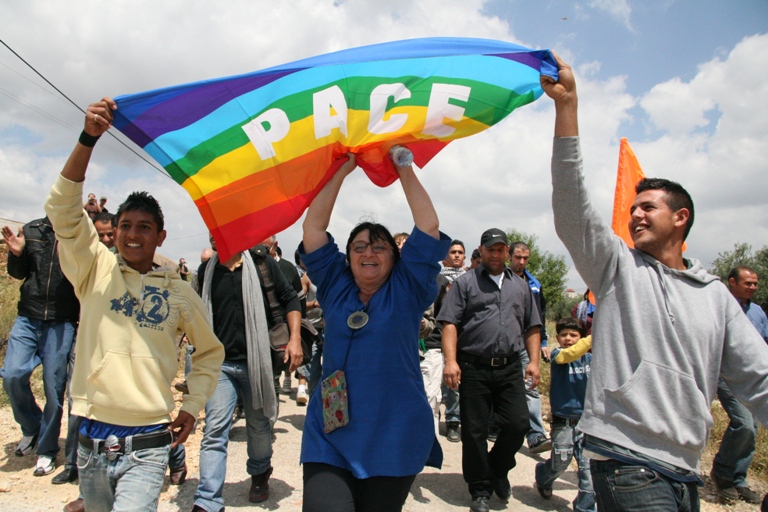Tag: Bil’in International Nonviolent Conference
-
Hundreds celebrate popular struggle at the opening of the 6th Bil’in conference
20 April 2011 | Popular Struggle Coordination Committee Dozens of diplomats and senior figures from across the Palestinian political spectrum joined hundreds of activists in the opening of the 6th International Bil’in Conference on Popular Resistance. Palestinian PM, Salam Fayyad, called for the international community to promote Palestinian self determination. The 6th International Bil’in Conference…
-
April 20-23: The 6th Annual Bil’in Conference on the Palestinian Popular Struggle
As nonviolent resistance for freedom sweeps across the Arab world, join us in harnessing the winds of change at the 6th annual Bil’in Conference. What: 6th Annual Bil’in Conference on the Palestinian Popular Struggle When: 20-23 April 2011 Where: The Village of Bil’in, Occupied West Bank From Gaza to Bil’in, popular resistance to the occupation…
-
Speeches from 4th Bil’in international conference on popular non-violent resistance
Culture of Resistance 18 May 2009 Dr. Haidar Eid speaks at the fourth Bil’lin International Conference on Popular Nonviolent Resistance.

